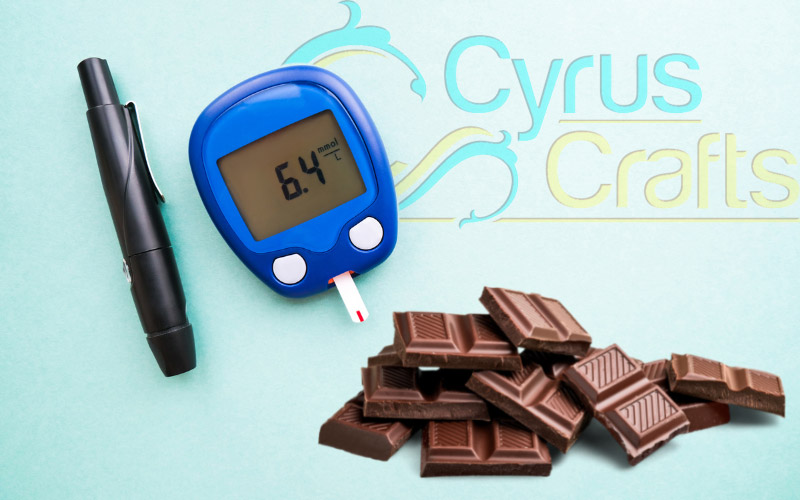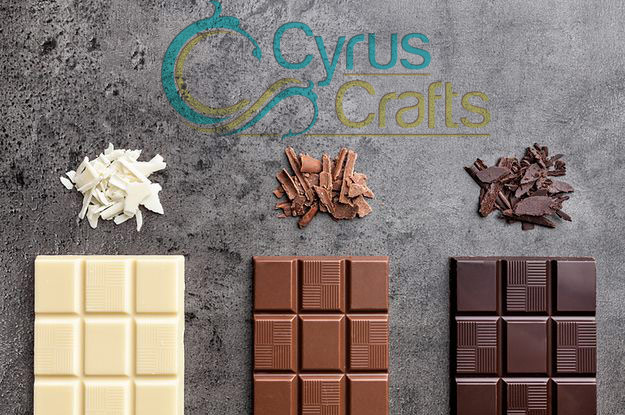- Y.SH
- Persian Tasty
- 1045 views
- 1 comments
Consumers need clarification about what to buy in this era of sponsored research and lobbying propaganda. Every day we are fed a new belief. Sugar is good; wait, now it is bad, but what kind? Fat is ok, but in moderation, or indulge? Chocolate prevents heart attack, actually cacao, perhaps in pills?
Diabetic people or People with dietary restrictions and preferences have an unprecedented amount of options for what they eat and drink these days. Sugar-free, nut-free, and gluten-free foods are commonplace in pantries and on grocery store shelves today, but some people are hesitant to try different versions of their favorite treats. Let's explore the ins and outs of sugar-free chocolate!

Now let's examine what makes up sugar-free chocolate.
What is Sugar-Free Chocolate?
"Sugar-free" might seem counterintuitive initially, but it's not that unusual. Candy without sugar contains artificial sweeteners to provide sweetness. Artificial sweeteners include all kinds of compounds, and sugar alcohols make up a significant portion of sweeteners used in sugar-free products today. Sugar alcohols like maltitol, mannitol, xylitol, and sorbitol don't contain sugar or alcohol — at least, not the table sugar and drinkable alcohol, you'd think. When used in sugar-free candy, these sugar alcohols offer sweetness without the spike in blood sugar that one would expect from a full-sugar treat.
How is Sugar-Free Chocolate Made?
Sugar-free chocolates and candies use artificial sweeteners or sugar substitutes to create a sweet taste without using natural sugar. Most of these sweeteners have fewer calories than regular sugar, but not all—so watch out!
You'll see these sugar substitutes on labels:
- Saccharin
- Aspartame
- Sucralose
- Sugar alcohols such as erythritol, xylitol, maltitol, lactitol, and sorbitol
- Stevia is a non-alcohol, non-artificial sugar substitute made from the leaf of a sweet plant.
Also, keep in mind that other ingredients in chocolate and candy may be unhealthy, as well. You must consider the entire product, not just how it's sweetened.

Why do People Eat Sugar-Free Candy and Chocolate?
Since artificial sweeteners aren't absorbed into the bloodstream as readily or completely as table sugar, it would seem that one's blood glucose levels experience less of a change when eating sugar alcohols than they would after consuming an equal amount of table sugar. Because they produce more minor changes in blood glucose levels, sugar-free candies make it easier for people with diabetes and other health concerns to control the amount of sugar they eat. Sugar-free candy is an excellent alternative for people who are on diets and want to enjoy sweets without being concerned about the grams of carbohydrates or calories. However, it should be consumed in moderation by people with diabetes (and everyone else as well).
Take a look at the article Honey or Sugar for more information about sugar
Can People with Diabetes Have Sugar-Free Chocolate?
Experts agree that, based on current evidence about the effects of different types of sugar on the body, people with diabetes should be eating more candy made without regular sugar than candy made with it. Because "Having the option of sugar-free candy to satisfy a sweet tooth without causing a spike in blood glucose can be very helpful, in addition to reducing one's daily sugar consumption and posing less of a risk to dental health." Therefore, sugar-free chocolate for diabetics is harmless.
Another possible benefit is that Sugar-free candy often, contains fewer total carbohydrates, less sugar, and fewer calories than regular candy.

But pay attention; It's also easy to consume more candy with the justification that it is sugar-free, potentially causing you to eat more calories and more carbohydrates than if you were eating regular candy made with sugar. Always read the nutrition facts label to see how many calories, carbohydrates, and sugar alcohols the candy contains.
Different Types of Sugar-Free Chocolates
Milk chocolate
Sugar-free milk chocolate is one of the most eaten chocolates. These chocolates have been infused with powdered, liquid, or condensed milk. Because of their high dairy content, milk chocolates melt quickly and have a sweeter flavor than other types.
This chocolate also has a creamier, softer texture than other chocolates. Moreover, these chocolates are a favorite delicacy among chocolate enthusiasts of all ages, owing to their sweetness and creaminess. However, use caution when using sugar-free milk chocolates, as even without sugar, they're extremely sweet and can quickly alter the taste of your desserts.

White chocolate
Chocolate enthusiasts dismiss white chocolate as "non-chocolate" simply because it lacks cocoa solids. However, it contains a significant amount of cocoa butter, natural or artificial sweeteners, and milk, giving it a delightful and creamy flavor.
However, limiting your intake of this substance is important because of its delicious flavor. You can also use white chocolate to counteract the bitterness of dark chocolate, mainly if you've included dark chocolate excessively in a treat, dessert, or recipe.
Dark chocolate
Sugar-free dark chocolate is made with a more significant proportion of cocoa; all fat content comes from cocoa butter rather than milk. This chocolate is high in antioxidants that minimize the effects of aging on the body.
Dark chocolates have also been linked to improved heart health and brain function. Furthermore, this sugar-free chocolate helps control diabetes or maintain a strict diet by making you feel less hungry.
Sugar-Free Chocolate Benefits
Let's Check out the various sugar-free chocolate benefits you can enjoy when you eat these delicious treats.
Improves your mood and helps you feel more energetic.
While excess sugar releases insulin, increases your blood sugar levels and triggers tryptophan which makes you sleepy, like saffron, sugar-free chocolates do the opposite. By consuming sweet treats free of sugar, you're loading your body with vitamins, proteins, fiber, antioxidants and other mood-enhancing nutrients. What's more, you're fueling your body and brain with sufficient energy that keeps you going throughout the day.

It helps Maintain Your Weight
Sugar-free chocolate can benefit your health by helping you lose weight and keep it off. Reducing sugar intake is essential to any weight-loss regimen, but eating chocolates without added sugars can help reduce inflammation and improve circulation.
Keeps Your Heart Healthy
Sugar-free chocolate also contains ingredients that boost circulation and lower cholesterol. Sugar-free chocolates are rich in copper, magnesium, flavonoids—and antioxidants: all of which help keep your heart healthy!







Comments (1)